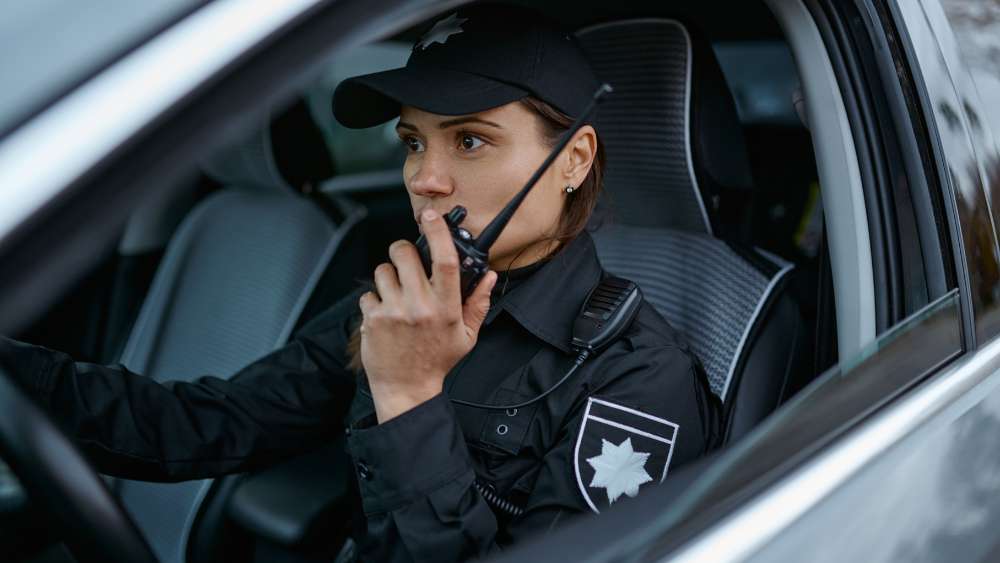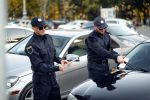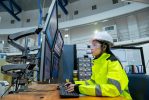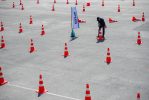
Security and guarding refer to the practices and procedures used to protect people, property, and assets from potential harm or threats. This can include a wide range of activities, such as surveillance, access control, and emergency response. We are best security & guarding services queensland provider.
Security guards are individuals who are trained to provide security and protection services for various organizations and businesses. They may be responsible for conducting regular patrols, monitoring surveillance systems, and responding to emergencies or incidents as needed. In some cases, security guards may also be responsible for enforcing rules and regulations, conducting searches, or carrying out investigations.
In addition to security guards, there are also other types of security professionals, such as security consultants, private investigators, and cybersecurity experts. These professionals may provide specialized services to help businesses and organizations protect their assets and information.
Overall, security and guarding are essential for ensuring the safety and security of people, property, and assets. Effective security measures can help to deter potential threats, minimize risks, and provide peace of mind for individuals and organizations alike.
SECURITY SUPERVISORS AND MANPOWER
Security supervisors are individuals who are responsible for overseeing the work of security personnel and ensuring that security procedures are being followed properly. They are typically senior-level security professionals with extensive experience in the field.
security supervisors and manpower are both essential components of effective security management. Security supervisors help to ensure that security procedures are being followed properly, while manpower planning helps to ensure that the right number of security personnel are available to provide adequate coverage.
PATROL, ROVING AND LOCKUP OFFICERS
Patrol officers are security personnel who are responsible for conducting regular patrols of an assigned area to ensure that it is secure and free from potential threats. Patrol officers may be assigned to a specific location, such as a building or campus, or they may patrol a larger area, such as a neighborhood or city.
Roving officers, on the other hand, are security personnel who are responsible for moving around within a particular area or facility, rather than patrolling a specific route. Roving officers may be responsible for monitoring surveillance systems, responding to alarms or incidents, and conducting regular checks of different areas within the facility.
Lockup officers are security personnel who are responsible for securing a particular area or facility after hours. This may involve locking doors and windows, setting alarms, and conducting regular checks to ensure that the area is secure. Lockup officers may also be responsible for responding to any incidents or emergencies that may arise during their shift.
CONTROL ROOM OPERATORS
As a Control Room Operator, you play a critical role in ensuring the safe and efficient operation of a facility or process. Your responsibilities include monitoring equipment, making adjustments, and responding to alarms and emergencies. Here are some key tips and information to help you excel in your role:
Safety first: Always prioritize safety in your operations. Be aware of potential hazards, follow safety procedures, and wear appropriate protective gear.
Monitor equipment: Keep a close eye on all equipment and processes under your control. Check for any abnormal readings or fluctuations and address them promptly.
Respond to alarms: When alarms sound, take immediate action to investigate the cause and resolve the issue. Don’t ignore or dismiss alarms, as they could indicate a serious problem.
Communicate effectively: Good communication is key in a control room. Keep your colleagues and supervisors informed about any issues, and be ready to provide updates as needed.
Stay calm under pressure: In emergency situations, it’s important to stay calm and focused. Follow established procedures and protocols, and be ready to take decisive action to resolve the situation.
Keep accurate records: Maintain detailed records of all activities and events during your shift. This will help you and others understand what happened and why, and can be useful for future reference or analysis.
Continuous learning: Stay up-to-date with the latest technologies, industry best practices, and regulatory requirements. Attend training sessions and seek out opportunities to expand your knowledge and skills.
EVENT STAFF AND CROWD CONTROLLERS
Event staff security is a crucial component of event planning, and it’s essential to have a well-trained and experienced team of security personnel to ensure that the event runs smoothly and safely. By assessing potential risks, providing extensive training, and having effective emergency response plans in place, event staff security can help to ensure that the event is a success while prioritizing the safety and security of all attendees.
TRAFFIC & CAR PARK MANAGEMENT
Traffic and car park management are crucial aspects of urban and suburban development. With increasing urbanization and the rising number of vehicles on the roads, efficient traffic and car park management have become essential to ensure smooth and safe flow of traffic, minimize congestion, and reduce pollution.
Effective traffic and car park management require careful planning, implementation, and ongoing monitoring to ensure that they meet the needs of all stakeholders and promote sustainable and safe urban and suburban development.
VIP PROTECTION
VIP protection security involves providing personal security to high-profile individuals such as celebrities, politicians, and business executives. The primary goal of VIP protection security is to ensure the safety and security of the VIPs while they go about their daily lives, whether it’s attending events, traveling, or simply going to work.
VIP protection security requires a comprehensive and integrated approach that includes physical security, cybersecurity, and crisis management. By taking a proactive approach to security and implementing effective measures, VIPs can go about their daily lives with the confidence that they are protected and secure.
LOSS PREVENTION
Loss prevention security is the process of identifying and mitigating losses that may occur due to theft, fraud, or other criminal activities. Loss prevention security measures are designed to protect businesses, their assets, and their employees, and to minimize financial losses.
loss prevention security requires a multi-layered approach that includes physical security measures, electronic security measures, training and awareness, fraud detection and investigation, and vendor and supplier management. By taking a proactive approach to security and implementing effective measures, businesses can minimize their losses and protect their assets.







